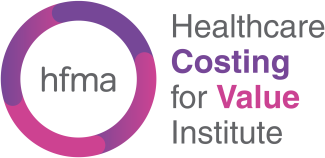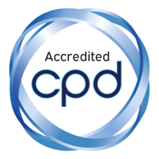
Event / Costing conference 2022
About this event
The Institute’s annual costing conference provides the NHS with the latest developments and guidance in NHS costing, as well as increasing awareness of the collaborative approach needed to truly harness the power of data. The day included interactive workshops, case study examples, and policy updates.
This was a must-attend conference for those looking for support to meet costing requirements, and the day was aimed at healthcare costing professionals and those not in a costing role but with an interest in the costing agenda.
Session content
Chris and Helen will be sharing the latest developments on the proposed move to a more frequent cost collection as well as updates on all of the latest news from the national costing and pricing team.
Costing teams have a wealth of data at their disposal and many now have cost and activity data down to patient-level. The challenge is how to make the most of this data to support improvements in the delivery of care. In this session James will talk about the importance of interpreting and analysing data and how costing teams can work with clinical colleagues to use the data they have to improve service delivery and support service change. As we move to a more system-based approach, James will also look at some of the challenges in using the information we have beyond organisational boundaries and what can be achieved when clinical, financial and informatics colleagues work together.
We do not have permission to share these slides.
The skills and resources already within costing teams means that they are well equipped to support local initiatives on health inequalities. Their expertise in the interpretation and use of cost and activity data, as well as their partnerships with business intelligence colleagues will be extremely beneficial in enabling identification of opportunities to reduce inequalities. In this session Mary and John will give an overview of the national strategy and look at how costing teams can support this work.
The number of emergency readmissions was being flagged internally as a concern. At the time the reporting and monitoring of readmissions was done in a basic way and there was no data readily available for clinicians and managers to identify trends, hotspots or flag patients requiring review. The costing team developed a PLICS dashboard with clinicians which analysed the readmissions and linked original admissions in terms of costs, HRG sub chapter, diagnosis, ward and clinician. This was used by senior clinical staff to review the readmissions and enable a more targeted approach. In this session Jenny will share details of the process they went through and how the data is being used. The session will also explore the trusts plans to fully embed PLICS across the organisation and wider across the ICS.
We do not have permission to share these slides.
In 2020, the Institute worked with a number of organisations on the mental health value challenge to ask the question, “How can we maximise the use of resources in mental health to provide the best possible outcomes for service users”. In this interactive session, Keiley and Sheelagh will talk about their involvement in the project, the challenges they faced and the outcomes. They would welcome a conversation around the subject from others who have ever thought about or implemented a working process.
Reporting accurate patient-level costing data into a national database isn’t the only reason to cost using PLICS, and increasingly is not even the main reason. Many organisations now analyse and interpret their data locally to make important decisions about their services. In this session, Sarah will share details of the costing journey at University Hospitals Plymouth, the challenges they have faced during the pandemic, the areas where PLICS data is being used to improve service delivery and their plans for the future.
Over the past two years there has been a focus on operational management of the pandemic which has led to efficiency requirements being put on hold. Guidance for 2022/23 signals a return to a financial regime that involves delivering savings. Recovery plans will require trusts to use limited resources to maximum effect with productivity, efficiency and value foremost in the minds of senior leaders. This panel session will discuss the Kindly sponsored by role of costing teams in supporting financial sustainability and how exploring the costs of care across whole patient pathways could provide opportunities to deliver real savings across systems.
There were no slides used for this session.
The LLR team were a key part of a multidisciplinary team that developed the innovative LLR Primary Care funding model utilising population health data, primary care, secondary care, and costing information to create a needs-based funding formula. Nicci will be sharing further details about the model which was shortlisted and highly commended for the 2021 HFMA Costing Award.
Related content
The value masterclass shares examples of organisations and systems that have pursued a value-driven approach and the results they have achieved.
A delegate-led event tackling specific technical costing challenges and discussing some of the practicalities of implementing the costing standards.
